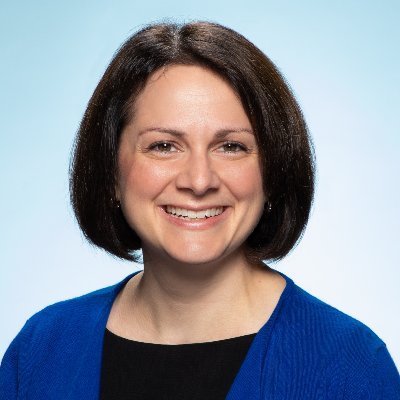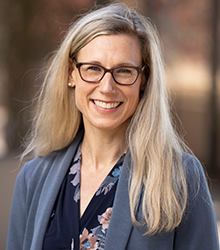E22. Social Technology Use with Dr. Mazurek
/In this episode, Dr. Micah Mazurek (University of Virginia) discusses her research on screen-based technology use among autistic individuals. (11 min)

ACCESS Division 33 is the official podcast of Division 33 of the American Psychological Association. In each episode, a member of our Division is interviewed, discussing their work and why it is important to the lives of individuals with IDD and ASD and those who support them.

In this episode, Dr. Micah Mazurek (University of Virginia) discusses her research on screen-based technology use among autistic individuals. (11 min)

In this episode, Dr. Cynthia Johnson (Cleveland Clinic Center for Autism and Case Western University) discusses the development of an intervention to improve sleep in children with autism. (13 min)

In this episode, Dr. Gazi Azad (Columbia University) discusses the development and implementation of Partners in School, a consultation model for improving parent-teacher communication in schools. Dr. Azad offers tips for caregivers and teachers. (16 min)

In this episode, Dr. V. Mark Durand (University of South Florida) discusses the role of parent attitudes and the importance of parent optimism in behavioral interventions for children with autism. (13 min)

In this episode, Dr. Vanessa Bal (Rutgers University) discusses the importance of taking a lifespan approach to understanding autism and describes her research on early predictors of long-term developmental outcomes. (12 min)

Dr. Kristin Long (Boston University) discusses the importance of studying autism and IDD through a cultural lens and describes the approaches her team uses to study siblings and caregivers from diverse cultural groups. (12 min)

In this episode, Dr. Brett Ranon Nachman (University of Arkansas) discusses his work on support programs for autistic individuals in higher education and offers a sneak peek at his newest project on autistic college student success. (17 min)

In this episode, Dr. Sasha Zeedyk (CSUF) discusses her work examining the effectiveness of a Toastmasters-based intervention for autistic youth using a community-based approach. (11 mins)


In this episode, Dr. Megan Stone-Heaberlin and Dr. Lauren Schmitt (Cincinnati Children's Hospital Medical Center) discuss their development of a training program to improve communication between first responders and autistic community members. They share advice, insights, and initial findings from police officers and autistic self-advocates who participated in the training. (10 min)

In this episode, Dr. Marc. J Tassé (Ohio State University) discusses his research on remote support services and the benefits of technology for promoting independence in community living for individuals with intellectual and developmental disabilities. (12m)

In this episode, Dr. Julie Lounds Taylor (Vanderbilt University) discusses her research on the transition to adulthood for youth with autism spectrum disorder. She describes her development of a parent advocacy training intervention for parents of youth on the autism spectrum and offers tips for young adults on the spectrum and their families. (10 min)

In this episode, Dr Laura Lee McIntyre (University of Oregon) discusses her development and adaptation of two parenting interventions for parents of children with intellectual and developmental disabilities. She describes her early findings and upcoming projects, and offers tips for parents and other caregivers. (15 min)

In this episode, Dr. Neilson Chan (Loma Linda University) discusses his work in assessing and understanding anxiety in children with ASD. (11m)

In this episode, Dr. Jason K. Baker (CSUF) discusses his research examining how parenting and child factors combine to influence the development of children with ASD, the status of the current knowledge with regard to parenting children with ASD, and some tips for parents. (13 min)

In this special episode, we break format in order to bring together input from several experts, each giving advice regarding the current COVID-19 health crisis and related stay-at-home issues. (20 min)
Issues discussed include: parenting, stress, family relationships, homeschooling, interventions, and maintaining social contact.
Drs. Baker and Fenning share contributions from Dr. Laura Lee McIntyre (U of Oregon), Dr. Eric Butter (Nationwide Children’s Hospital), Dr. V. Mark Durand (U of South Florida, St. Petersburg), Dr. Cameron Neece (Loma Linda University), Dr. Tracy Guiou (Kadiant), Dr. Sigan Hartley (UW-Madison), Dr. Geovanna Rodriguez (U of Oregon) , Dr. Jan Blacher (UCR), Dr. Diane Hayward (UK Young Autism Project), Dr. Julie Lounds Taylor (Vanderbilt), and Dr. Elizabeth Laugeson (UCLA).

In this episode, Dr. Jan Blacher (UC Riverside) discusses her research focusing on student-teacher relationships for children with IDD and ASD, why we should be concerned, and what she and her colleagues are doing to improve these relationships (14 min)

In this episode, Dr. Sigan Hartley (University of Wisconsin-Madison) discusses her work investigating factors that might buffer the onset of Alzheimer’s disease in individuals with Down Syndrome as they age. (11 mins)

In this episode, Dr. Gael Orsmond (Boston University) discusses her program aimed at helping families and siblings of individuals with ASD with future planning (11 mins, 39 secs).

In this episode, Dr. David Michalec (Nationwide Children's) discusses Prader-Willi Syndrome, what parents can do to help their children with PWS, and how professionals support these children and families (10 mins, 47 sec).

In this episode, Dr. Cameron Neece (LLU) discusses parent stress and stress reduction in families of children with IDD and ASD, what parents can do to reduce their stress, and how reduced parent stress can benefit children (15 mins, 53 secs)
ACCESS Division 33 is produced by Laurel Benjamin, Jason K. Baker, and Division 33 of the American Psychological Association. Podcast artwork is by Spencer Baker.
If you would like to suggest a topic for the podcast, please visit our contact page and send us a message with the subject line “podcast.”
The views expressed on the podcasts are those of the individuals involved and do not necessarily reflect the perspectives of the American Psychological Association or of Division 33.